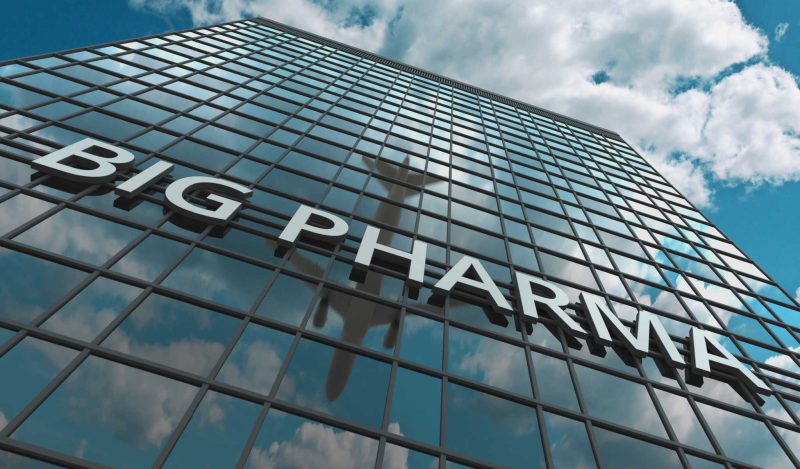On February 24, 1985, The New York Times published “Glory Days End for Pharmaceuticals.” The article cited growing competition and legal liabilities as signs that “the big drug companies have suddenly found themselves mired in the same sort of troubles that have plagued less-glamorous industries for years.”
“Inevitably some [companies] will face staggering liabilities and lengthy court cases on approved drugs that later turn into flops,” journalist Winston Williams wrote.
Of course, the glory days did not end for Big Pharma.
From 2000 to 2018, 35 pharmaceutical companies reported cumulative revenue of $11.5 trillion. A study found that this was “significantly greater than other larger, public companies in the same time frame.”
Pfizer’s annual revenue jumped from $3.8 billion in 1984 to a record $100 billion in 2022. The company’s Covid products, including its vaccine and Paxlovid accounted for $57 billion of that income.
The US Government provided a steady stream of taxpayer dollars for Big Pharma’s revenue and shielded the benefiting companies from the cost of litigation.
Federal purchases of Pfizer and Moderna’s mRNA Covid vaccines have totalled more than $25 billion. The government paid Moderna $2.5 billion of taxpayer funds to develop the vaccine, and President Biden called on local leaders to use public money to bribe citizens to get the shots.
These new glory days lack the “staggering liabilities” that formerly held private companies accountable. Citizens cannot sue vaccine manufacturers – including Pfizer, Moderna, and Johnson & Johnson – for any harms resulting from the Covid shots.
In February 2020, Secretary of Health and Human Services Alex Azar invoked his powers under the Public Readiness and Emergency Preparedness (PREP) Act to provide liability immunity for medical companies in response to Covid.
Azar repeatedly amended the order to continue providing liability immunity for pharmaceutical companies. A Congressional report explains that this means that the corporations “cannot be sued for money damages in court” if they fall under the protection of Azar’s orders.
Americans bore costs related to producing the company’s products and purchasing the inventory of vaccines. In return, they faced mandates to take the mRNA shots, and they lost their right to hold commercial powers accountable for malfeasance.
This process subverted the purpose of the Seventh Amendment and created a new system of “glory days” for Big Pharma.
Subverting the Seventh Amendment
The Seventh Amendment guarantees the right to a jury trial in civil cases. At the time of its ratification in 1791, advocates of the amendment sought to protect the rights of common citizens against commercial powers that would otherwise corrupt the judicial system for their own benefit.
In Federal Farmer IV (1787), the author, writing under a pseudonym, argued that the jury system was “essential in every free country” to maintain the independence of the judiciary. Without the protection of the Seventh Amendment, hegemonic forces – “the well born” – would wield the power of the judiciary, and they would be “generally disposed, and very naturally too, to favour those of their own description.”
Sir William Blackstone called jury trials “the glory of the English law.” Like Federal Farmer IV, he wrote that the absence of a jury would result in a judicial system run by men with “an involuntary bias towards those of their own rank and dignity.”
The Declaration of Independence listed King George III’s denial of “the benefits of trial by jury” to colonists as a grievance that led to the American Revolution.
Centuries later, we have returned to a system that denies citizens the right to jury trials for the benefit of commercial interests.
The revolving door between Big Pharma and government, coupled with the denial of trial by jury, threatens that those who control the regulation and litigation process will favor “those of their own rank and dignity.”
Alex Azar, the HHS Secretary responsible for enacting the PREP Act, was president of the US division of Eli Lilly from 2012 to 2017. There, he oversaw significant price increases for drugs. For example, Eli Lilly doubled the price of its insulin medicine from 2011 to 2016.
In 2018, Kaiser Health News found “Nearly 340 former congressional staffers now work for pharmaceutical companies or their lobbying firms.”
Scott Gottlieb resigned as Commissioner of the FDA in 2019 to join Pfizer’s Board of Directors, a position that pays $365,000 per year. Gottlieb went on to advocate for lockdowns and censorship during Covid, even encouraging Twitter to suppress pro-vaccine doctors who discussed natural immunity.
White House Counselor Steve Richetti worked as a lobbyist for twenty years before joining the Biden administration. His clients included Novartis, Eli Lilly, and Pfizer. The New York Times described him as “one of [Biden’s] most loyal advisers, and someone Mr. Biden will almost certainly turn to in times of crisis or in stressful moments.”
Just as Blackstone warned, this system allows the powerful to insulate those of their “own rank and dignity” from the accountability of jury trials.
Law Professor Suja Thomas writes that “the jury is effectively a ‘branch’ of government — similar to the executive, the legislature, and the judiciary — that has not been recognized and protected” by legal elites and corporations.
But the federal government and Big Pharma have usurped the jury’s role as a “branch” of government. The result – the most powerful forces in our society warping the legal system to protect their interests – is in part what the Framers designed the Seventh Amendment to oppose.
The Best Legal Defense Money Can Buy
Pfizer and Big Pharma purchased this liability shield through effective marketing campaigns and lobbying.
Pharmaceutical Research and Manufacturers of America (PRMA) is a trade group that lobbies on behalf of Big Pharma. Its members include Pfizer, Johnson & Johnson, and AstraZeneca.
The group spent $85 million on lobbying from 2020 to 2022 and nearly $250 million over the last decade.
This is only a fraction of Big Pharma’s overall spending on government influence. From 2020 to 2022, the pharmaceutical and health products industry spent $1 billion on lobbying.
For context, this was more than five times as much as the commercial banking industry spent on lobbying during the same time period. In those three years, Big Pharma spent more on lobbying than the oil, gas, alcohol, gambling, farming, and defense industries combined.
In addition to purchasing the support of government officials, Big Pharma dedicates even more resources to buying the hearts and minds of the American people and their media outlets.
Pharmaceutical companies spent significantly more money on advertising and marketing than research and development (R&D) during Covid.
In 2020, Pfizer spent $12 billion on sales and marketing and $9 billion on R&D. That year, Johnson & Johnson devoted $22 billion to sales and marketing and $12 billion to R&D.
The industry’s efforts were rewarded. Billions of dollars in advertising resulted in millions of Americans tuning into programming sponsored by Pfizer. The press promoted their products and seldom mentioned Big Pharma’s history of unjust enrichment, fraud, and criminal pleas.
Upon the release of Pfizer’s 2022 Annual Report, CEO Albert Bourla stressed the importance of customer’s “positive perception” of the pharmaceutical giant.
“2022 was a record-breaking year for Pfizer, not only in terms of revenue and earnings per share, which were the highest in our long history,” Bourla noted. “But more importantly, in terms of the percentage of patients who have a positive perception of Pfizer and the work we do.”
The industry dedicated billions of dollars to manipulating Americans into taking its products while their government stripped them of their right to legal action; citizens, devoid of the ability to hold the companies accountable in the court of law, continue to subsidize the federal-pharmaceutical hegemon with their tax dollars.
In effect, the federal government sold the Seventh Amendment to the largest lobbying force in the country. This transferred power from the citizenry to the nation’s ruling class and exchanged a constitutional right for a corporate liability shield.
Published under a Creative Commons Attribution 4.0 International License
For reprints, please set the canonical link back to the original Brownstone Institute Article and Author.



